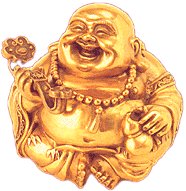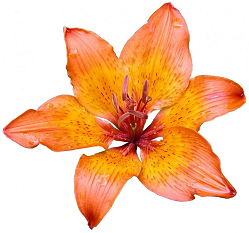|
|



|
|
HOME
Meditation J Krishnamurti Tao Te Ching Dhammapada Buddhist Classics A Call To Practice! One Buddha Per Universe A Lesson From A Ghost Karma Tales A Scripture That Protects Kings The Realms of Rebirth
|
Random Image
Buddhist Classics
Karma Tales
Flowers laugh without uttering a sound. Roosters cry without shedding tears. Examining the ages reveals that good deeds are as rare as flowers among rocky peaks while evil acts are as plentiful as the grass on fertile hills. Failing to improve one's cause and effect [i.e., karma] and committing sins is to be like a man without eyes who walks by stumbling along. . . . How can people not be more cautious? If you allow this life to pass by meaninglessly, then subsequent repentance will be of no use. How can you expect your momentary body to grow long eyebrows [like those of an immortal]? How can you always trust in fleeting fate? Since the world already has entered an aeon of decline, how can you not strive harder? Speaking faint words of anguish will not spare you from the disasters [of this aeon: famine, war and epidemics]. Merely offering one serving of food to the sangha, however, will cultivate good fortune so that in future lives you will avoid starvation. Observing for one full day the precept against taking life will strengthen your practice of the Buddhist path so that you will avoid wars throughout this aeon of decline.
Once there was a bhiksu [monk] who lived in the mountains and practised sitting Zen. Every day at his noon meal he would give some of his food to the birds. The birds, therefore, always flocked around him. One day after the bhiksu finished his meal, he cleaned his teeth, washed his hands and picked up a pebble to toss. There was a bird on the other side of the fence where the bhiksu could not see him. When the bhiksu threw the pebble, it hit the bird in the head and killed it. That bird was reborn as a boar, which lived on the same mountain. One day the boar happened to climb a ledge above the bhiksu's hermitage and dislodged a boulder while grubbing for food. The boulder fell down and killed the bhiksu. The boar intended no harm. The boulder killed by itself.
If even an unintentional act [i.e., the bhiksu's killing the bird] results in an unintentional retribution [i.e., the bhiksu being killed], then how much more so will murders that are accompanied by evil intentions generate baleful retribution! Planting evil seeds and reaping baleful fruit is the behaviour of one whose mind is deluded. Doing good and setting one's sights on bodhi [enlightenment] is the behaviour of one whose heart is awakened.
The Circumstances by which Sovereign Prince Shotoku Exposed an Extraordinary Countenance
Sovereign Prince Shotoku was the son of the Heavenly Sovereign Tachibana Toyohi [a.k.a. Yomei] who resided in Iware next to a pond and a pair of zelkova trees. During the reign of the heavenly sovereign [i.e., Suiko] who resided in Owarida he acted as sovereign prince [i.e. regent]. The prince had three names: Abundant Ears Stabledoor (umayado no toyotomimi), Holy Virtue (shotoku) and Upper Residence (kami-tsu-miya). Because he was born in a stable, he was called Stabledoor. Because he possessed the innate ability to listen to ten people argue at the same time without missing a single word he was called Abundant Ears. Because he behaved with monk-like dignity, because he wrote commentaries on Buddhist sutras such as the Queen Srimala and the Lotus, because he propagated the dharma to benefit living things, and because he systematized the hierarchy of court honours, he was called Holy Virtue. Because his house was located above the heavenly sovereign's residence, he was called Upper Residence.
Once when the sovereign prince still resided at his first home in Ikaruga, certain circumstances caused him to depart for an inspection tour. On the side of the road in Kataoka village there was a hairy beggar lying sick on the side of the road. When the prince saw the sick person, he dismounted, formally greeted him, took off his own cloak and covered him with it. Then the prince continued his inspection tour. Once the inspection tour was completed and the prince returned to that spot, he found his cloak hanging on a tree branch. The beggar was no longer there. The prince took his cloak and wore it. A minister addressed him: 'That robe is defiled because it has been touched by a commoner. Can you be so impoverished as to wear it?' The prince replied: 'Cease! You did not know him.'
Later that beggar died in another location. The prince heard of his death and sent men to perform the temporary burial and to inter his body at a tomb constructed in the Moribe hill, which is located in the northeast corner of Horin Temple in Okamoto village. The tomb was called Human Tree Tomb (hitoki haka). Later when the prince's men inspected the tomb, they discovered that it had not been opened and that there was no corpse to lay inside. There was only a poem, which had been written and attached to the tomb's door. The poem said: 'If the Tomi Creek in Ikaruga runs dry, oh, only then shall my lord's name be forgotten.' The men returned and reported [that the corpse had disappeared]. The prince listened to them in silence without saying a word.
Truly know that a holy person knows holiness, but an ordinary person knows not. The [minister's] ordinary physical eyes saw only a commoner, but the holy person's penetrating vision saw the hidden body [of an immortal]. It was a rare, strange affair.
Circumstances by which the Purchase and Release of Turtles Produced the Karmic Reward of Being Aided by the Turtles
Zen Master Hung-jae (Japanese: Gusai) was from the kingdom of Paekche. At the time of the wars in Paekche, the ancestor of the ruler of Mitani District in Bingo Province had been sent on a military expedition to aid Paekche. At that time he made a religious vow that if he were to return safely, then he would construct a monastery on behalf of the gods. Since he avoided disaster, he asked the Zen master to return with him. Mitani Temple is the monastery that the Zen master constructed. Priests and laypeople alike looked upon it with awe and reverence.
The Zen master needed gold leaf and other goods to complete the temple's main buddha image. He went to the capital to sell produce in exchange for these items. He returned via the port of Naniwa. When the master arrived there, a fisherman was selling four large turtles. The Zen master encouraged people to purchase the turtles and to release them. Then he hired a boat, which he boarded, along with two boys, to cross the Inland Sea. In the middle of that night, the boatman decided to go to Kabane Island in Bizen. He grabbed the boys and threw them into the sea. Then he turned to the Zen master and said: 'Get into the Sea.' The Zen master tried to edify the thief, but the boatman could not be reformed. Thus, the Zen master made a vow and jumped into the sea. The water rose only as high as his waist. He felt boulders under his legs. At dawn he saw he was being supported by turtles. They carried him through the sea to Bitchu and, after nodding their heads three times, left. Could it be that they repaid their debt of gratitude for having been released?
On a subsequent occasion, that thieving boatman and six commoners came to the Zen master's temple to sell the gold leaf [that they had stolen from the Zen master]. First, the patron came out to calculate the price. Afterwards the Zen master came out and saw them. The commoners were terrified. They did not know whether to stay or to run away. The Zen master, out of pity, did not impose any additional punishment. He [merely instructed them to] make the buddha image, decorate its pagoda and to make offerings.
In later years the Zen master moved to the seashore, where he taught whoever came by. He lived more than eighty years.
If even beasts do not forget acts of kindness and repay their obligations, then how can (so-called) righteous men forget their obligations?
...Excerpt from Buddhist Scriptures
Continues in Part Two...



Contact • Feedback • Typo • Privacy • Home